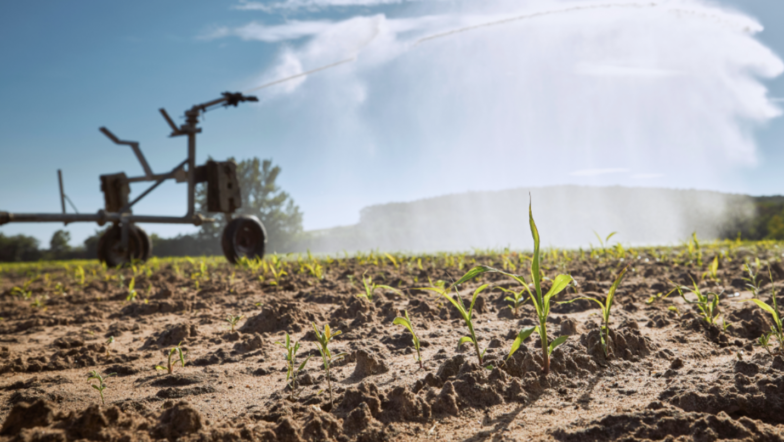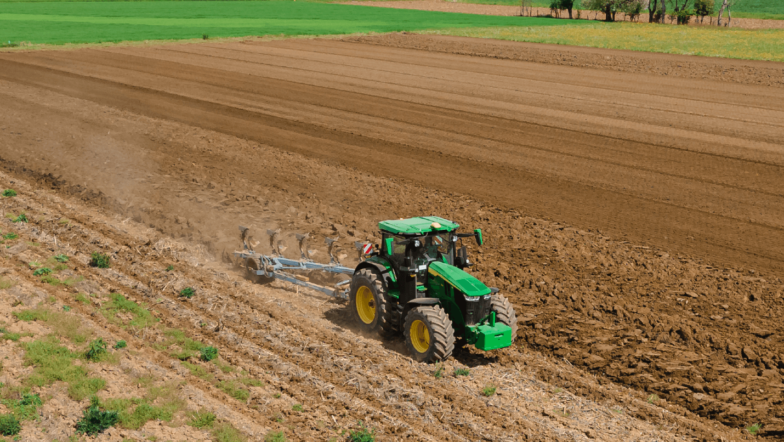Within the agricultural sphere, the practice of organic farming stands as an advocate for nature-friendly methods. Beyond a mere absence of synthetic inputs, it represents a fusion of traditional wisdom and contemporary techniques, fostering a harmonious relationship with the environment. Its significance spans across ecological, health, and economic dimensions.
The inquiry into whether investing in organic farming holds merit requires a comprehensive evaluation. Organic farming isn’t solely about the immediate cultivation of crops; it encapsulates a broader spectrum. It nurtures soil vitality, sustains diverse ecosystems, and reduces the presence of harmful chemicals in our food. Yet, determining its fiscal worth necessitates a scrutiny of associated expenses and hurdles. Balancing initial investments against the enduring benefits becomes paramount. Join us as we embark on an exploration of the landscape of organic agriculture, dissecting its multifaceted value as a forward-thinking investment in a sustainable future.
What is organic farming
Organic farming is an agricultural approach that prioritizes environmentally sustainable practices, biodiversity, and the use of natural processes over synthetic inputs. This method rejects the use of synthetic pesticides, fertilizers, genetically modified organisms (GMOs), and growth hormones. Instead, it relies on techniques that promote soil health, such as crop rotation, composting, and the use of natural fertilizers like manure or compost. A core principle of organic farming is to work with natural ecosystems rather than against them, aiming to maintain and improve soil fertility, prevent soil erosion, and encourage biological diversity.
This farming approach caters to the well-being of both the environment and consumers. It emphasizes the reduction of pollution, conserves water, and promotes animal welfare. Organic farmers employ methods that support a more balanced ecosystem, fostering beneficial insect populations and minimizing the impact on natural habitats. By avoiding synthetic chemicals, organic farming seeks to produce food that is free from potentially harmful residues, offering consumers products perceived to be healthier and more wholesome.How is it different from regular farming methods
Here’s how organic farming stands apart from other methods of farming-:
- Philosophy and Approach-: Organic farming is centered around sustainability, avoiding synthetic pesticides, fertilizers, and genetically modified organisms (GMOs). It relies on natural methods like crop rotation, compost, and biological pest control. In contrast, conventional farming typically utilizes synthetic chemicals, GMOs, and monoculture, focusing on maximizing yield and efficiency. These approaches often involve extensive use of chemical pesticides, synthetic fertilizers, and technological interventions to boost production.
- Soil Management-: Organic farming emphasizes soil health and fertility through practices such as crop rotation, cover cropping, and composting. These methods enhance soil structure and microbial diversity, fostering long-term sustainability. On the other hand, conventional farming may rely more on chemical fertilizers and pesticides, potentially leading to soil degradation, reduced biodiversity, and dependence on external inputs for continued productivity.
- Pest and Weed Control-: Organic farming utilizes integrated pest management (IPM), employing natural predators, crop rotation, and resistant crop varieties to control pests and diseases. Weeds are managed through techniques like mulching, hand weeding, and cover cropping. Conventional farming often relies on chemical pesticides and herbicides to combat pests and weeds, which can lead to issues such as pesticide resistance, environmental pollution, and harm to non-target organisms.
- Environmental Impact-: Organic farming tends to have a lower environmental impact due to reduced chemical usage, leading to healthier ecosystems, improved water quality, and minimized soil degradation. Conventional methods, however, can contribute to environmental issues such as soil erosion, water pollution from chemical runoff, and habitat destruction due to monoculture practices.
- Health and Nutritional Value-: Organic farming often claims to produce food with fewer pesticide residues, higher nutritional content, and potentially higher levels of certain antioxidants and beneficial compounds. However, scientific consensus on the nutritional superiority of organic produce compared to conventionally grown food remains a topic of ongoing research and debate.
- Economic and Market Factors-: Organic farming typically involves higher production costs due to manual labor, certification, and sometimes lower yields. As a result, organic produce often commands higher prices in the market. Conversely, conventional farming, with its focus on high yield and efficiency through technological advancements, might have lower production costs but could face challenges related to market price fluctuations and consumer demand for more sustainably produced goods.
Is organic farming the need of the hour in India
Organic farming stands as a crucial imperative in India, addressing multifaceted challenges. With a burgeoning population, it’s imperative to secure sustainable agricultural practices. India’s agriculture heavily relies on chemical-intensive methods, yet the adverse impact on soil health, water quality, and biodiversity is evident. Organic farming, characterized by natural inputs and environmentally friendly techniques, offers a remedy. The method fosters soil fertility, preserving vital nutrients while reducing the perils of chemical residues in crops.
India faces an increasing health crisis due to pesticide residues in food. Organic farming’s emphasis on natural pest control methods and absence of synthetic chemicals presents a compelling solution, offering safer, healthier produce for consumers. Furthermore, it aligns with traditional agricultural practices deeply rooted in Indian farming heritage, resonating culturally and resonating with consumers seeking a connection to their food’s origins.
This shift to organic farming also opens avenues for small-scale farmers. By reducing dependence on expensive chemicals and fostering a diversified ecosystem, organic practices can alleviate financial burdens, making agriculture more economically viable for smallholders. Additionally, it can fortify rural communities by generating employment opportunities and fostering local markets, contributing to a more equitable and sustainable agricultural landscape.
In the grand tapestry of agriculture, the age-old debate between organic and conventional farming illuminates the path to a sustainable future. Organic farming, with its roots in traditional wisdom and modern techniques, brings forth a holistic approach that impacts our environment, health, and economy.
The debate over investing in organic farming unravels a story beyond mere crop cultivation. Its focus on soil health, ecosystem preservation, and safer food production requires balancing initial costs against long-term benefits.
In India, the call for organic farming resonates deeply. The nation’s reliance on chemical-heavy agriculture poses significant challenges to soil, water, and public health. Organic farming steps in as a solution, offering safer produce and honoring India’s agricultural heritage.
This shift doesn’t just address environmental and health concerns; it also empowers small-scale farmers economically. It weaves a narrative of community, sustainability, and a promising future for Indian agriculture. As we journey through the complexities of agriculture, embracing organic farming becomes a resilient stride towards harmonizing our relationship with the environment.







Benefits of organic farming-: Worth the investment?